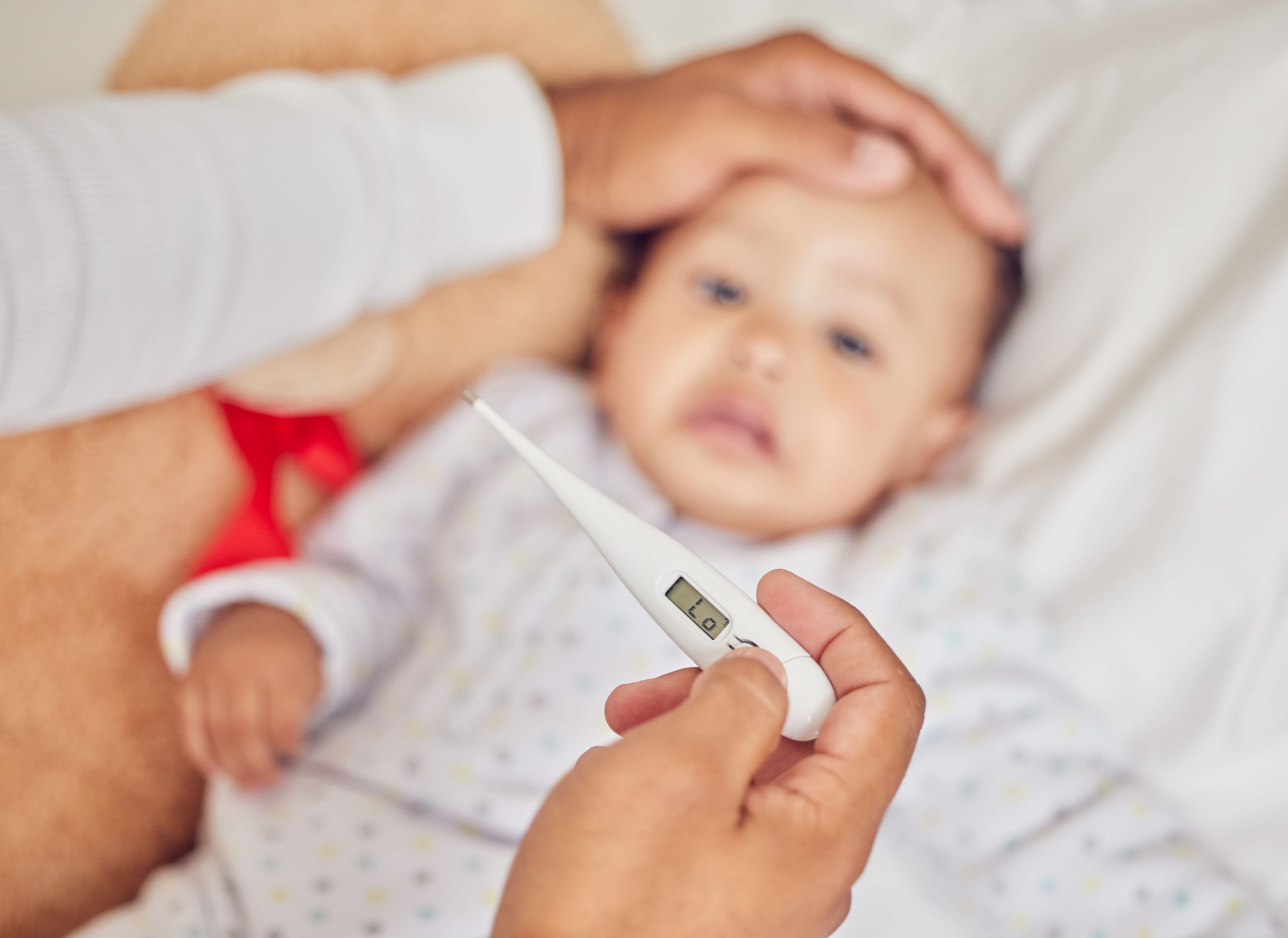For any parent or caregiver, tending to a sick infant may be among the most physically and emotionally taxing events they go through. Unlike older children or adults, newborns cannot communicate what they feel, which makes it more difficult to know their pain and react correctly. Whether it’s a basic cold, a fever, or something more severe, the secret to helping a sick infant is devoted care, correct observation, and quick medical consultation together. Keeping a careful watch on symptoms and establishing a peaceful, caring surroundings may assist hasten healing and provide comfort throughout disease. From symptom management and hygienic practices to when to seek expert aid, this article provides useful advice on how to properly care for ill newborns, thereby making you feel more confident and competent at such sensitive moments.
Understanding Common Symptoms and Early Detection
Giving newborns the treatment they need right away depends on early disease detection. Unlike older children, newborns cannot explain their symptoms; so, parents have to depend on behavioral indicators include unusual agitation, reduced eating, trouble sleeping, or a rapid change in bowel motions. Though they should not be discounted, common symptoms include runny nose, coughing, slight fever, or vomiting usually point to small illnesses.
Parents should be particularly sensitive to symptoms such high temperature, dyspnea, frequent weeping, or changes in skin tone—these might point to more major medical issues. Maintaining a newborn symptom journal allows one to monitor changes and give helpful data for doctors. When in doubt, always err on the side of caution and see a pediatrician for direction on the next actions.
Providing Comfort and Care at Home
Making a comforting home environment might help the infant heal faster after symptoms have been recognized and a diagnosis established. Offer the infant more frequent nursing or formula feeding to keep her hydrated. Small sips of water or oral rehydration treatments may also assist older infants avoid dehydration, particularly in situations with fever or diarrhea.
Gentle caressing, soft blankets, and keeping the infant in a calm, darkly lit room will all help to increase comfort. Use a humidifier to ease congestion or a warm bath to soothe aching muscles. Dressing the baby in breathable, comfortable clothes helps regulate body temperature and avoid further discomfort. Additionally, avoid overstimulating them with loud sounds or too many visitors—rest is critical to recovery.
Maintaining Hygiene to Prevent Further Illness
Good hygiene is a critical part of caring for a sick baby, both to promote healing and to prevent the illness from spreading to other family members. Always wash your hands before and after handling the baby, especially after diaper changes or cleaning up bodily fluids. If other siblings or caregivers are involved, ensure everyone is following similar hygiene protocols.
Sanitize baby bottles, pacifiers, toys, and any other items the baby frequently touches. If the baby is coughing or sneezing, gently wipe their face with clean, damp cloths and dispose of tissues properly. Washing the baby’s clothing and bedding in hot water with baby-safe detergent can help eliminate lingering germs. Taking these preventive measures also protects babies with weaker immune systems from developing secondary infections.
Knowing When to Seek Medical Attention
While many baby illnesses can be managed at home, there are instances when immediate medical attention is required. A fever in infants under three months old—defined as 100.4°F (38°C) or higher—should always prompt a doctor’s visit. Signs like labored breathing, bluish lips or skin, unresponsiveness, or severe vomiting are red flags that need urgent evaluation.
Persistent symptoms that don’t improve after a few days or worsen over time should also be examined by a healthcare provider. Trust your instincts—if something feels wrong, it’s better to get it checked. It’s also helpful to keep the baby’s medical records and vaccination history updated and accessible during visits, ensuring the doctor has the full picture when diagnosing or recommending treatments.
Supporting Yourself While Caring for a Sick Baby
Caring for a sick baby can be draining, especially for parents who are also juggling work, household tasks, and emotional stress. It’s important to remember that your well-being matters too. Try to rest when your baby sleeps, and don’t hesitate to ask for help from family or friends. Even short breaks can help you recharge and return to caregiving with more patience and energy.
If stress or anxiety becomes overwhelming, speak with your partner, a friend, or a healthcare professional. You are not alone—many parents go through this, and support networks exist for a reason. Taking care of yourself isn’t selfish; it’s necessary for maintaining the strength and clarity needed to care for your baby effectively.
Conclusion
Caring for a sick baby requires patience, observation, and a nurturing touch. By understanding symptoms early, creating a comfortable healing environment, maintaining hygiene, and knowing when to seek medical help, parents and caregivers can navigate these challenging moments more confidently. While it’s never easy to see your baby unwell, attentive and compassionate care makes all the difference in helping them recover safely and swiftly.
